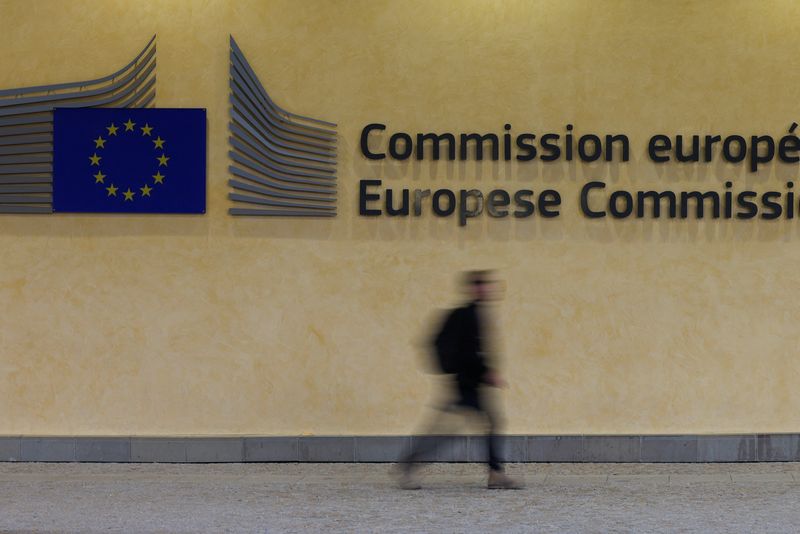By Kate Abnett
BRUSSELS (Reuters) - Greenpeace will take the European Commission to court over its decision to include gas and nuclear energy in the EU's list of investments that can be labelled as "green", the campaign group said on Thursday.
Greenpeace requested a formal review in September of the Commission's decision, arguing the European Union had violated its own climate laws by labelling some gas and nuclear energy investments as green.
After Brussels rejected its request to withdraw the rules, Greenpeace said it would file a lawsuit at the EU's top court in April, on grounds including that the CO2 emissions limits for gas power plants are too loose for the EU to achieve its climate goals.
"We will fight this fake green label in court," Greenpeace campaigner Ariadna Rodrigo said.
Four other groups - WWF, Friends of the Earth Germany, Transport & Environment and ClientEarth - had also requested Brussels withdraw the green label for gas. The groups said on Thursday they were considering their next steps.
A Commission spokesperson said it had assessed the claims and concluded that its green finance rules did not contravene environmental law.
"The Commission will not amend the Complementary Delegated Act," the spokesperson said, adding that the rules labelled gas and nuclear investments as green under "strict conditions" that will be reviewed every three years.
"This aligns with our pathway to net zero, where gas and nuclear are recognised as important parts of the transition in several Member States," the spokesperson said.
The EU rules, known as the "taxonomy", aim to provide a gold standard for sustainable investing, but became mired in controversy last year and sparked fierce debate between EU member states.
Countries including Spain and Denmark had argued it was not credible to label gas, a CO2-emitting fossil fuel, as climate friendly. Poland and Bulgaria were among those who sought rules supporting investments in gas, to help them quit more-polluting coal.

The EU's debate over whether to use gas as a "bridge" fuel between coal and renewable energy has intensified after Europe's former top gas supplier Russia slashed supplies last year, following its invasion of Ukraine.
The EU rules do not ban investments in activities without a green label, but restrict which ones can be labelled as sustainable - a system designed to make truly climate-friendly activities more visible and attractive to investors.